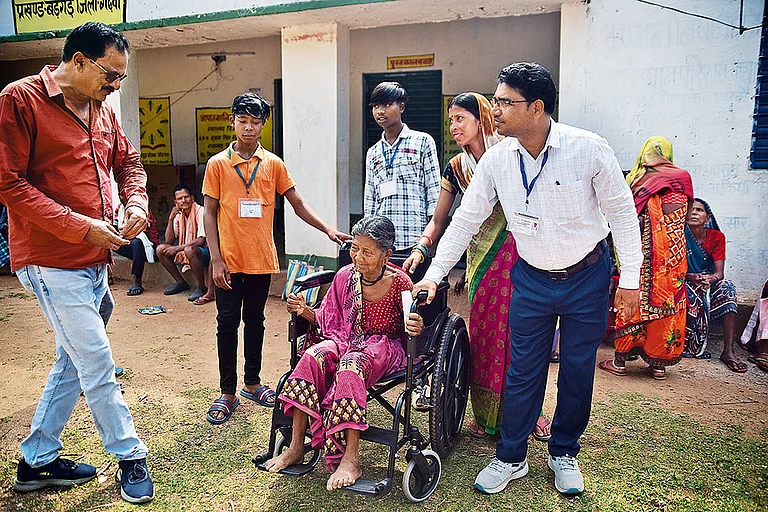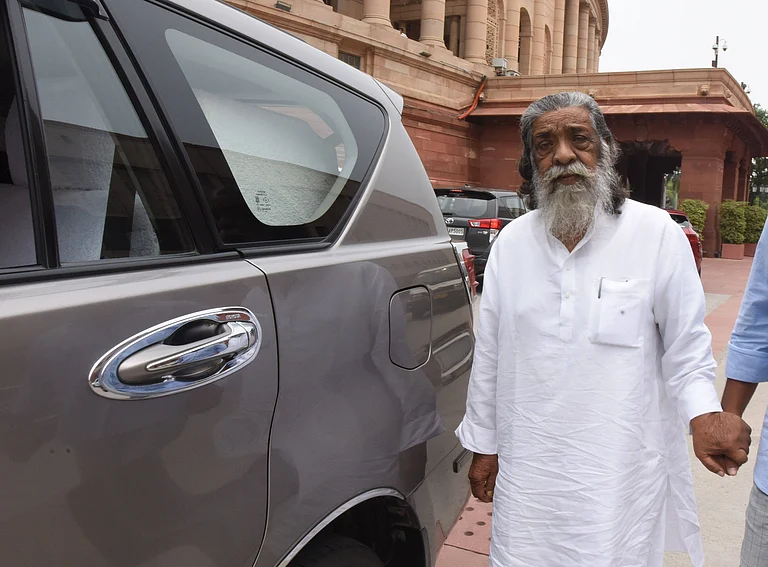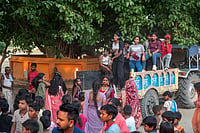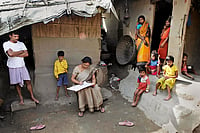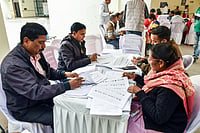With the 2024 Lok Sabha elections recently concluded, several states are now gearing up for their soon-to-be-held Assembly elections. In Jammu and Kashmir, Haryana, Maharashtra, and Jharkhand, the Bharatiya Janata Party (BJP) has removed its old in-charges, replacing them with two new in-charges each. These union territory and states witnessed significant drops in the party’s vote percentages and number of seats, compared to the previous elections.
In Jharkhand, the BJP had won 12 out of 14 seats in 2014 and 2019. This time, it suffered a loss of three seats. Notably, all three of them were tribal reserved seats. At present, all of the state’s five tribal reserved seats are held by the INDIA bloc, i.e., by the Jharkhand Mukti Morcha (JMM) and the Congress. It is also significant to note that of the 28 tribal reserved Assembly seats of the state, 24 fall under these five Lok Sabha seats.
The BJP’s organisational overhaul in view of the upcoming elections has thrown up two names in particular. Former Chief Minister of Madhya Pradesh and Union Agriculture Minister Shivraj Singh Chouhan has been made the Jharkhand in-charge, with Assam Chief Minister Himanta Biswa Sarma as co-in-charge. These appointments are being viewed as part of a strategy to win over the tribal votes.
Senior journalist Sunny Sharad is of the view that the party’s strategy in Jharkhand will draw from its experience in Chhattisgarh and Madhya Pradesh – neighbouring states also with significant tribal populations – where it has made delisting a major issue. This involves the removal from the list of scheduled tribes of those tribals who have accepted Christianity or other religions. While Chouhan, with his prior experience, will oversee the operations statewide, Sarma is expected to woo the Santhal tribals in particular with his aggressive brand of Hindutva.
The BJP has been raising the issue of Christian and Muslim tribals for a long time. In Chouhan, it has a leader with the experience of ruling the largest tribal-dominated state, Madhya Pradesh, for 20 years continuously. It remains to be seen to what extent he succeeds in mobilising the tribals in Jharkhand along the same lines.
Sarma has always been vocal on the issue of Muslim infiltration. Santhal is the region where the BJP has been accusing the ruling parties, i.e. the JMM and the Congress, of promoting Muslim Bangladeshi infiltrators for their vote bank, while usurping the rights of the tribals living there.
At present, the INDIA bloc holds all the tribal reserved Assembly seats of Santhal. Sharad says, “In Jharkhand, the BJP's national agenda has failed to gain traction. Only the local issues have prevailed here. And the main local issue here is Hemant Soren. The JMM managed to make the tribals believe that the Central government, i.e., the Modi government, has put Soren behind bars. As a result, the BJP lost even the tribal seats it had won earlier. Now it remains to be seen what difference these two leaders make. I believe that to gain power, the party will have to win at least 10 tribal seats.”
The importance of the tribal votes for the BJP can be gauged from the fact that when in 2014, it won 11 out of 28 tribal seats, the National Democratic Alliance it is part of swept into power with absolute majority. But it was ousted from power when its tally dropped from 11 to two tribal seats in 2019.
The losses incurred by the BJP in the recent Lok Sabha elections have also affected the trust it had reposed in the state party president Babu Lal Marandi. If sources are to be believed, Marandi may yet retain his post, but former Union Minister Arjun Munda, who faced defeat in the Khunti Lok Sabha constituency, may be assigned an important role in the Assembly elections.
On the other hand, the INDIA government led by Chief Minister Champai Soren appears to have entered the election mode in full swing. After the tribal and Muslim votes, its sights are now trained on the OBC votes. In a June 20 meeting, the cabinet approved 33 new proposals, one of which was the momentous decision to conduct a caste census in the state. The Soren government has also green-lighted several other decisions that may impact the election results, including increase in the limit of free electricity to 200 units, farm loan waiver of up to two lakh rupees, and financial assistance to women above 25 and below 50 years of age. In the wake of the 27 per cent OBC reservation bill, the decision to conduct a caste census can prove to be a masterstroke for the INDIA bloc.
Electoral analysts believe that Kalpana Soren, who took charge of the Lok Sabha elections after the arrest and incarceration of her husband Hemant Soren, will be seen in the same role in the Assembly elections as well. She will hold the commands of the campaign, while Hemant will be the alliance’s chief face.
(Translated by Kaushika Draavid)








